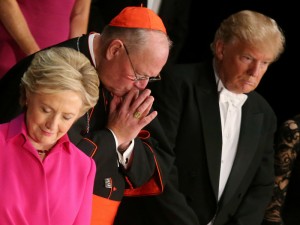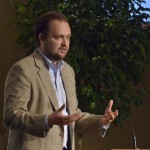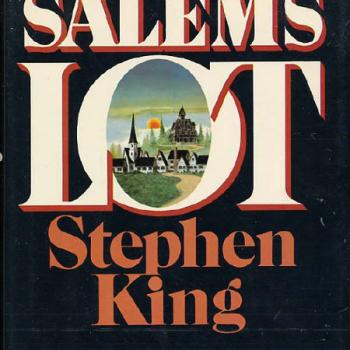
America is a weird place. It is a country that was founded upon Enlightenment principles of reason and deism (no, it was not founded as an explicitly Christian nation, despite what many revisionist “historians” would have you believe), yet on a popular level it has been and remains extremely religious. Evangelicals (sociologically speaking; defining “evangelical” in a theological sense has become ever more difficult to do) have been a huge cultural and political force in this regard, especially since the 1980s with the rise of the “Moral Majority.”
Fast-forward about thirty years and religion and culture-wars have yet again played a major role in the American political process. If the recent election has shown us nothing else, it has shown us that religion—specifically a particularly syncretic form of American evangelicalism (again, sociologically speaking)—still has socio-political force. With exit polls saying that 81% of white evangelicals voted for Donald Trump—perhaps one of the most blatantly impious men ever to run for office—it is easy to see that cultural placement and entrenched bipartisan identities has taken the place of chief importance for many American Christians (I couldn’t, in good conscience, vote for either Clinton or Trump, and so voted third-party for the first time).
But it is not only the Republican Party that has a religion problem. The Democratic Party has one that may be even bigger. In contrast to Barack Obama’s campaigns in 2008 and 2012, which made efforts to reach out to religious and evangelical voters, Hillary Clinton’s 2016 campaign actively disdained such voters in many respects. Particularly around the issue of abortion, Clinton seemed to go out of her way not to find common ground with conservative-to-moderate religious voters. Obama did just the opposite of this in 2008 and 2012, using faith-outreach teams to help facilitate reaching religious voters. And it paid off for him.
Most of this is becoming well-tread news of course, but over at The Atlantic, Emma Green has just published a new interview with former Obama Administration faith-outreach director, Michael Wear, titled, “Democrats Have A Religion Problem.”
It is a fascinating interview, with Wear as one of the few remaining theologically and socially-conservative Democrats providing fascinating insight into the utter lack of religious sensibility among Democratic politicians and staffers. Wear also touches on some of the issues within the GOP as well.
One of Wear’s statements in particular stood out to me:
…there’s a religious illiteracy problem in the Democratic Party. It’s tied to the demographics of the country: More 20- and 30-year-olds are taking positions of power in the Democratic Party. They grew up in parts of the country where navigating religion was not important socially and not important to their political careers. This is very different from, like, James Carville in Louisiana in the ’80s. James Carville is not the most religious guy, but he gets religious people—if you didn’t get religious people running Democratic campaigns in the South in the ’80s, you wouldn’t win.
Another reason why they haven’t reached out to evangelicals in 2016 is that, no matter Clinton’s slogan of “Stronger Together,” we have a politics right now that is based on making enemies, and making people afraid. I think we’re seeing this with the Betsy DeVos nomination: It’s much easier to make people scared of evangelicals, and to make evangelicals the enemy, than trying to make an appeal to them.
The whole article is well worth a read and, thankfully, is pretty short.












